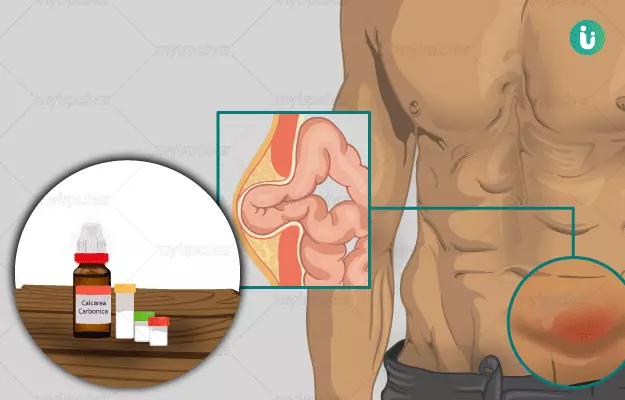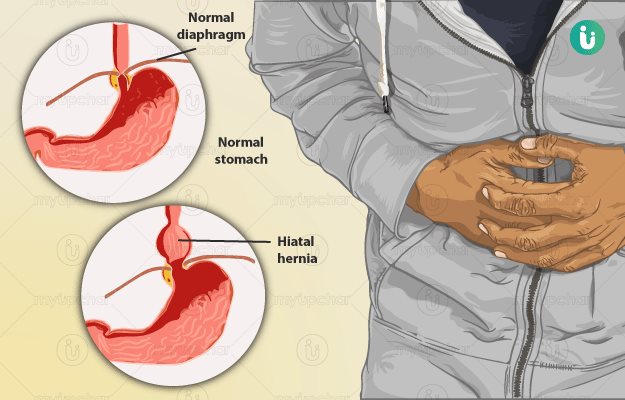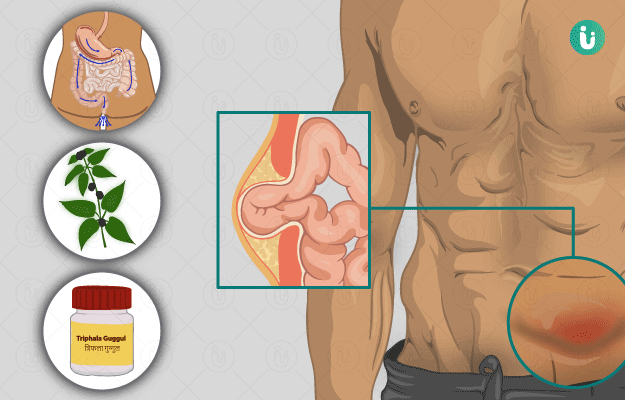Hernia is a medical condition wherein an organ or tissue protrudes through a weak section of the body. These weak muscle areas could be present since birth or may appear later in life.
Hernias affect indivudals of all ages and are seen in men and women alike. Most commonly, hernias are noted in the abdominal wall. However, depending on the tissue and organ involved, hernia could be of different types. This includes:
- Inguinal hernia: Occurs in groin
- Umbilical hernia: Occurs in the naval area.
- Incisional hernia: Occurs through a scarred tissue
- Hiatal hernia: It is present in a small opening in the diaphragm.
- Obstructed or incarcerated hernia: Marked by obstruction in the colon (large bowel)is obstructed
- Strangulated hernia: Results in blocking of blood supply to intestinal tissue which can cause serious complications.
Most commonly hernia appears in the form of a localised lump or swelling, which may change in size while lying down or coughing. Due to the protrusion of an organ, the individual may also experience a heavy and uncomfortable feeling while bending or lifting things. Hernia can also lead to other symptoms such as constipation and pain.
Hernia is usually diagnosed with the help of a physical exam followed by imaging tests to confirm the diagnosis.
Surgery is the best way to treat hernia completely. However, the use of homeopathic medicines such as Nux Vomica, Opium, Tabacum, and others have also proven to be effective in the management of hernia symptoms.


































